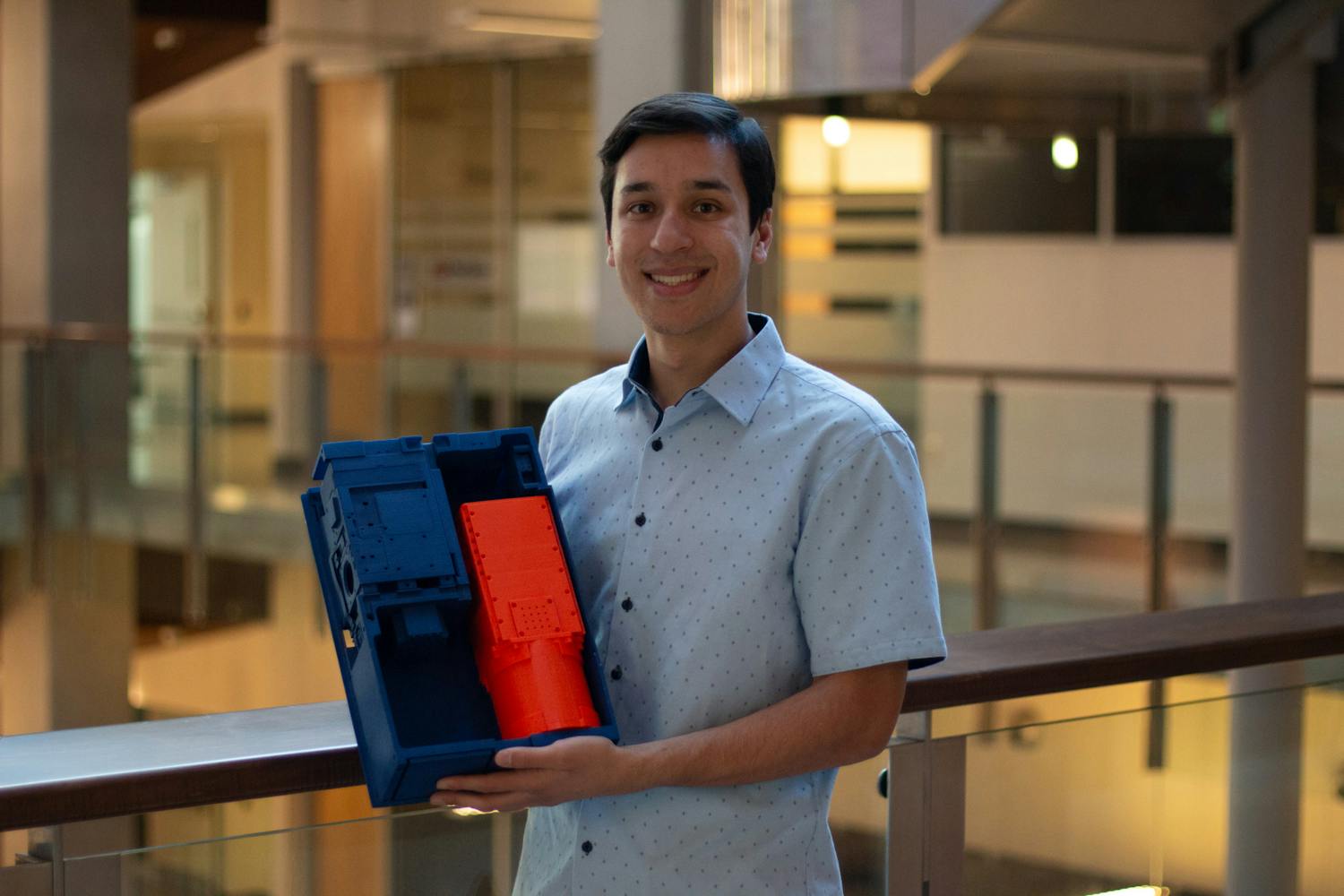One ASU student's commitment to establishing sustainable practices in her own residence hall has since transformed into a project that will soon reach all on-campus students.
Taylor Bakeman, an ASU alumna and Vista Del Sol resident, started a precursory composting program in Vista with Zero Waste in 2019. Her initial project allowed Vista del Sol residents to check out a bin that Zero Waste would transport to a composting facility, establishing a model for student participation in reducing food waste.
"Once we saw those best practices we realized it was up to us to prepare those engagements to institutionalize it," said Kendon Jung, a program manager for experience design under ASU's Zero Waste team.
Starting in spring 2023, the Zero Waste department expanded a student-led composting program to residential life. Vista del Sol, Adelphi Commons, the Barrett Complex, University Towers and Villas at Vista have been equipped with small sheds for composting for all residents.
ASU set a zero waste goal for 2025, meaning nearly all waste would be diverted for reuse within ASU or the surrounding community. To accomplish this goal, the Zero Waste department develops scalable strategies for waste management while working with other organizations and departments, according to Jung.
"Our role is to inform and guide units on campus to establish best practices in zero waste management," Jung said. In an effort to make the program easily accessible, Jung's work focuses on visual appeal and general awareness, which includes professional presentations and social media.
While Zero Waste is a fully staffed department of ASU, the origin of the residential composting program is in student activism.
Grace Reiter is a sophomore studying sustainability and the head of the Sustainability Committee at Changemaker Central. She has worked directly with Zero Waste and the Residence Hall Association to institutionalize the residential composting program.
"When I met Kendon Jung, I expressed that (composting) was a goal of mine … he let me know what we needed from my end, which was students, students, students, we need to get this out to students," Reiter said.
Reiter also explained the origin of the slow rollout that the composting program is using.
"All these selected places have kitchenettes, so we wanted to appeal to the places that generate the most food waste. We wanted to make sure that the students living there knew about this program," Reiter said.
Part of Reiter's passion for this project comes from creating habits in young adults. Her contributions to the program focus on student outreach, especially with community assistants in the residence halls.
"College is such an integral part of life, you develop so many habits, you really learn a lot about how you want to function as an adult. So if you’re entering this period of habit building I think a great habit to bring into that is sustainable practices," Reiter said.
While the current residential composting program is not offered in every hall, it is set to expand to the Greek Leadership Village and all residence halls on Downtown Phoenix, Polytechnic and West campuses in fall of 2023. By spring 2024, the plan is for composting bins to be available in all Tempe campus residence halls.
While these residence halls wait for the expansion of the program, the students that live there can still compost via the dining halls. Krista Keisu is the sustainability manager for Sun Devil Hospitality, which runs all dining halls at ASU. In an email, she explained some of their composting procedures.
"Dining halls compost all food/ paper products in the back of house while prepping meals and front of house from the dish return consumer waste," Keisu said. She also explained that Zero Waste maintains a set of composting bins located in the Memorial Union.
Outside of just composting, the dining halls and Changemaker Central run other food-related sustainability programs. For example the dining halls have a fryer oil reuse program, which has recycled 16 tons of oil for biodiesel. Changemaker is also planning a farmers market at the Tempe campus on April 21 to promote local produce.
Edited by Annie Graziano, Reagan Priest and Anusha Natarajan.
Reach the reporter at syramir2@asu.edu and follow @nerdyoso on Twitter.
Like The State Press on Facebook and follow @statepress on Twitter.
Sophia is a senior studying biological sciences. This is her fifth semester with The State Press. She has also worked as a science and technology reporter.




